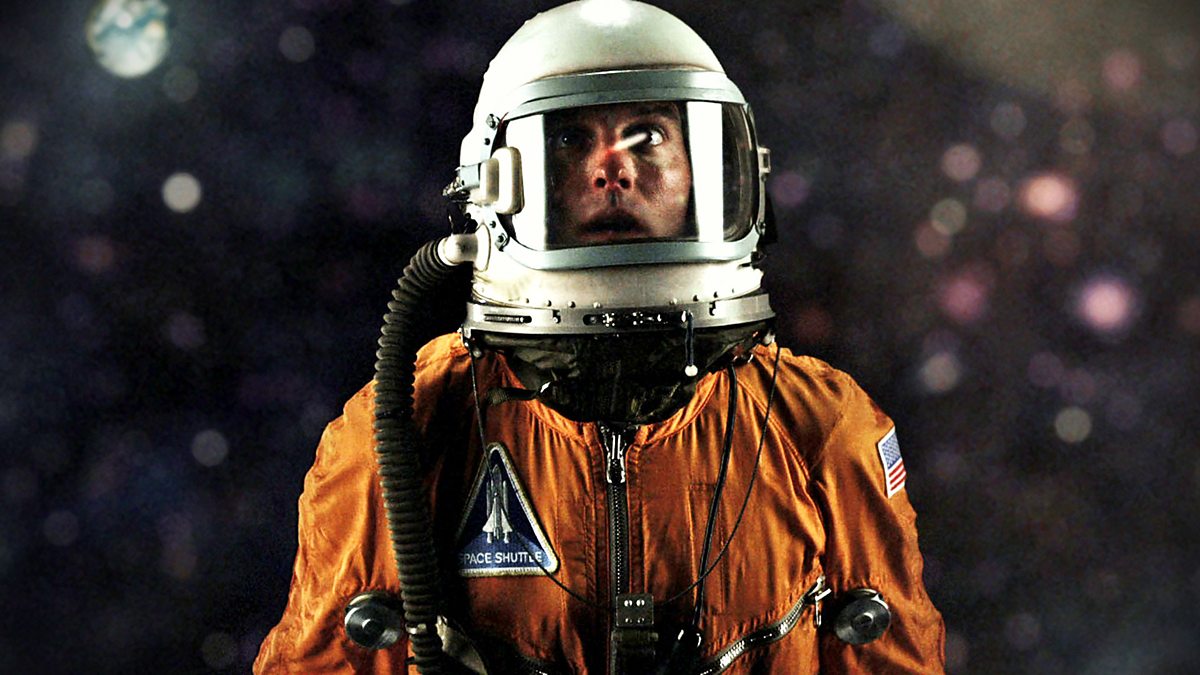
As we head into the third decade of the 21st Century, science fiction in film seems poised to catch up with itself. No other genre lends itself so well to the spectacle of the multiplex, but no other genre can date itself so quickly either. Whether reboot or modern update, science fiction films and television show us possible futures, dystopias, wastelands, and in some cases, happiness.
What good to great science fiction stories do is ask age old questions, thought experiments designed to affect us now, and perhaps warn us for later. These ten films ask interesting questions and they hold ideas that we should be talking about more. They are neglected yes, but ripe for rediscovery.
1. Love (2011, William Eubank)
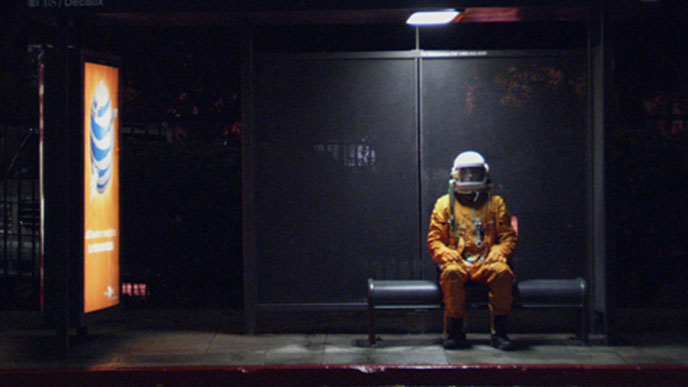
The film begins in a curious place, the US Civil War. A lone captain is dispatched to investigate a mysterious object. Flash forward a century and a lone astronaut floats above earth in the now abandoned ISS.
While he is there, a disaster that is never confirmed cuts off his communication with earth, and the film hints that another war has devastated the planet. The astronaut is left all alone, and the majority of the film is his experience keeping himself sane. Imagine an update of 2001: A Space Oddysey by way of indie engenuity.
A lot has been made of this film’s production and connection to Tom deLonge of Blink 182 and Angels & Airwaves fame. It also used live Civil War reenactments for the historical scenes. Despite the indie production, mysterious cubes that may have helped humanity advance, and a large alien presence near the end, this film looks at isolation in very real ways.
A slightly overlooked aspect of the story is the juxtaposition of the Civil War with a new global war that wipes out humanity. In each instance, the slaughter of war is accompanied by the arrival of an alien entity trying to understand humanity. What this floating archive is left with is one human being, and the irrational emotions of a soon to be extinct species. As commentary on human social needs and our desire for historical narratives to influence (or not influence) our behavior, this film could stand up to repeated viewings and debate.
2. The Andromeda Strain (1971, Robert Wise)
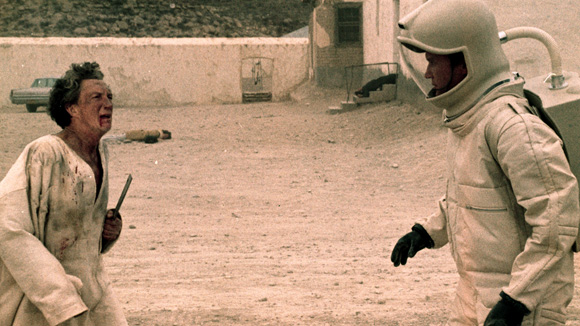
Based on the techno-thriller by Michael Crichton, this film translates a dense text full of scientific hypotheses and technical jargon into a stately science fiction film that aimed for verisimilitude instead of spectacle. The intellectual thrust of the film asks very important questions, in somewhat of a War of the Worlds in reverse. What if an alien virus, bacteria, or unknown organism was small enough to survive reentry on a falling satellite? And what if that small virus-like creature could destroy us in hours, with no cure?
The film also has much to say about the fail-safe precautions we set up, and if those will actually protect us should the worst occur. A huge government facility has been created in secret to deal with viral catastrophes. This facility, and the technology created to contain the virus, may end up spreading it faster if the automated nuclear bomb at its core attempts to incinerate the invading threat. A race against time occurs on several fronts.
An interesting question asked by the book and the film becomes what is next? After we conquer this outbreak, will other superbugs wipe us out? The film ends as the book did in contemplating what larger unknown illnesses and infections await us on arth, and in space, once we surmount what we already know and detect. While it does not give easy answers, the film gives commentary on evolutionary changes that help us, but could easily have swung the other way.
3. Another Earth (2011, Mike Cahill)
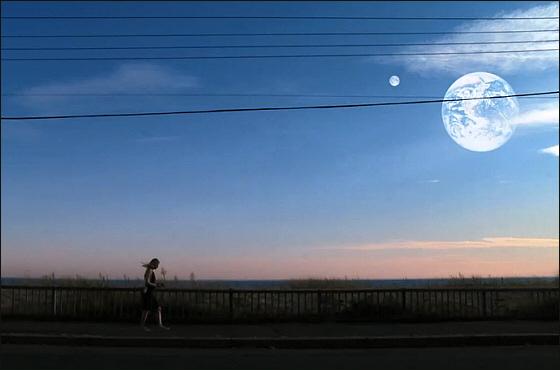
This film tackles the alternate earth/alternate life question with an independent film’s focus on emotion and human connection. An intelligent teenager (Brit Marling), destined for MIT, makes a terrible decision the night a new earth appears in the night sky.
Driving under the influence, she kills a mother and child, and severely injures the father. This act lands her in prison, and when she gets out she is broken to the point of suicide. She eventually inserts herself into the life of the man whose family she killed. The film plays this for emotional impact, but could have been much darker than the ‘lost souls find each other after tragedy’ the film ends up being.
The subplot of the film is that a mission is being prepared to go to this new earth, and an essay contest is being held to see who should be picked to go. Once the father of the lost family learns that this new woman in his life is the same woman that took away his family, he is nearly consumed by rage, but backs off. The heroine wins the essay contest, but gives the ticket to the father so that he might see his family alive on the other earth. It is a complicated play of emotions and choices, and the ending leaves the audience to wonder about guilt, sacrifice and second chances.
4. Sound of My Voice (2011, Zal Batmanglij)
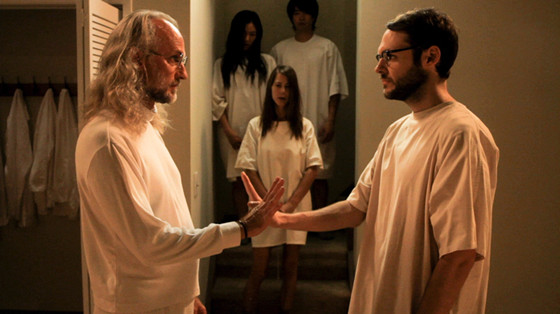
This is another film from 2011 starring and co-written by Brit Marling, but a decidedly darker tone hovers over the entire movie. Two documentary filmmakers infiltrate a new cult hidden in the San Fernando Valley outside Los Angeles. They must brave unique and mysterious rituals in getting to the inner sanctum to meet Maggie (Marling) who claims to be from the future.
She is sickly, and cannot maintain her health in this era because in her time (2054), a devastating war has changed human culture and sustainability. Her immune system has trouble adapting. As a curious development, the cult grows all her food in the basement of the house she resides in. While watching the film you can imagine ‘organic’ stickers on all the fruit and vegetables. Connecting the non-GMO movement to a cult seems to be saying something between the lines.
She realizes that she needs to be a harbinger of terrible times to come, and that she can pick a few to heed the warnings and perhaps fare better than she did after the wars. As cults go all the trappings are there in bizarre rituals, handshakes, and the ethereal presence of Marling as the blonde white woman sent to save us all, or at least those that can pass successfully throught the emotional torture she imposes on them to make them ‘clean.’
Seen as an allegory for the times we live in now, this film asks viewers to choose what they believe in, to have faith as it were. Your answer at the end of the film may say more about who you are than the film does about who Marling really is.
5. The Man From Earth (2007, Richard Schenkman)
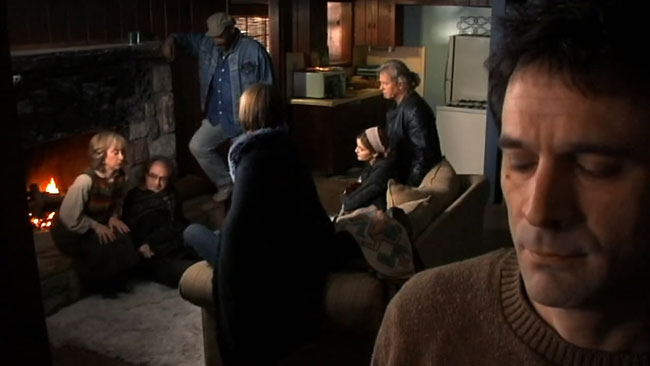
Unique among this list, the film plays out like a chamber piece in one location, over the course of one evening. This film is the purest of science fictions. It sets up an interesting situation and then plays out the implications through conversations as opposed to special effects, chases, or beautiful visuals. This is truly a thinking person’s film written by Jerome Bixby, a beloved writer of Twilight Zone and Star Trek episodes.
The movie follows John Oldman (no points for subtlety) a man that does not age, and has seen human history from the dawn of prehistoric man until the present. On the eve of his “retirement” from a local university, his colleagues throw him a going away party, and press him for an answer as to why he is leaving them.
John reveals, over the course of the evening, that he has lived for millenia. The scientists of the group are sceptical of his claims, his former and current students are fascinated, and the creative faith of one character is tested. When John claims to have inspired the story of Jesus many in the group can’t take him seriously, and even think he is mentally ill.
While the film does not answer the burning question of John’s origin, at its core it asks the viewer to decide based on faith or science, what John is. The sadness comes at the end when we see the tolls that living forever would really take on someone that has seen the loves of his life pass away naturally. Would living forever be worth it? And if people lived longer, would life be as precious? Is it our limited time that makes human lives special?